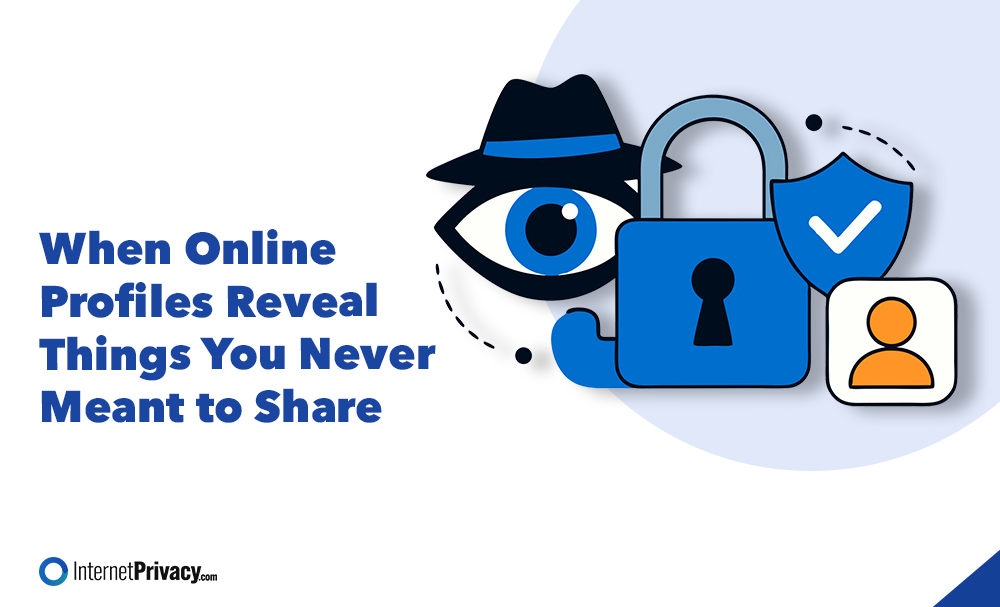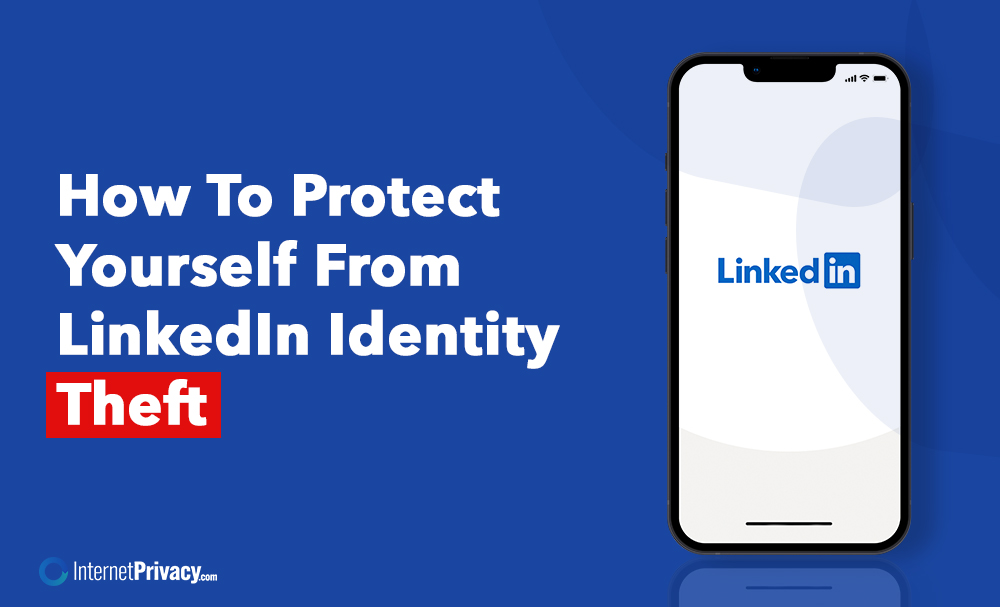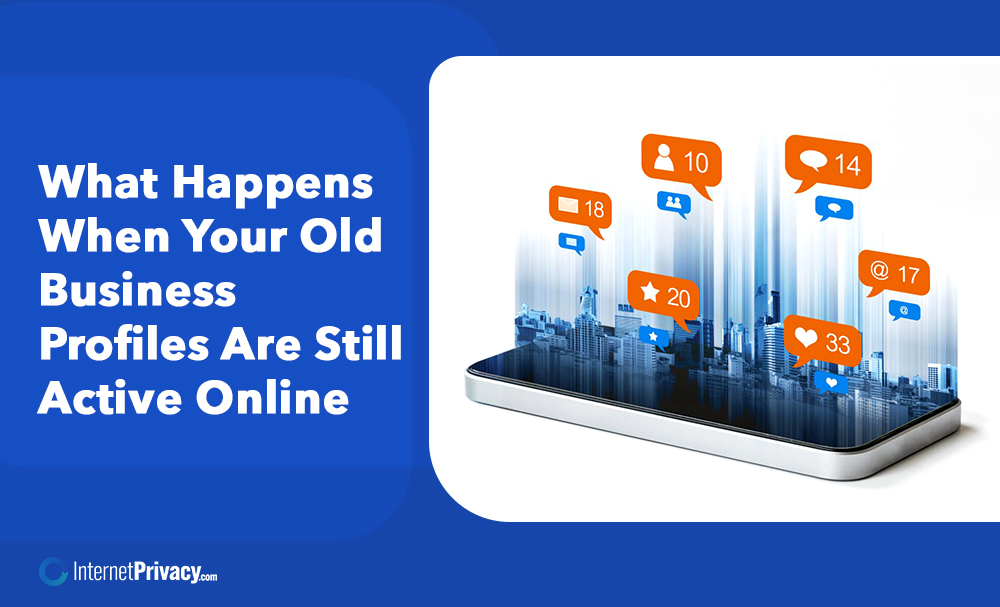When Online Profiles Reveal Things You Never Meant to Share

Your online profile is more than just a personal expression—it’s a powerful tool that can either open doors to career success or quietly leak details you’d rather keep private. As more people rely on social media platforms, LinkedIn profiles, and other platforms to connect, share, and network, the line between your personal life and professional online presence has become dangerously thin.
Whether you’re actively in a job search, building a professional profile, or just scrolling through Facebook, your digital footprint matters.
What Are Online Profiles (and Why Do They Matter)?
Your online profile is the snapshot the internet presents about you. Whether it’s your LinkedIn, Twitter, Facebook, or even YouTube account, it often includes your name, photos, posts, interests, shared links, and more.
Professionally, these profiles can help you:
- Showcase your skills, expertise, and knowledge
- Attract potential employers, clients, or collaborators
- Build a network of connections who share your interests
But they can also:
- Exposes private details unintentionally
- Shape how other users and potential clients perceive your brand
- Cost you new opportunities if the content doesn’t match your target audience
Your professional online presence is part résumé, part reputation. That’s why every post, photo, or shared video matters.
Why People Create Online Profiles
People create online profiles for many reasons—staying in touch with friends, engaging with a community, finding a job, or sharing relevant industry content.
On the career side, your profile acts as a personal marketing platform:
- A well-crafted LinkedIn profile with a professional photo, strong summary, and relevant keywords helps you stand out in a crowded job market.
- Sharing content regularly can build trust and position you as a thought leader.
- Following events, posting insights, and joining groups on various platforms can demonstrate your involvement and expertise.
Done right, your online presence works in your favor. But done wrong—or left unmanaged—it can reveal things that turn off employers, alienate peers, or harm your credibility.
How Oversharing Happens (Even When You Don’t Realize It)
Oversharing isn’t always intentional. You might think you’re just posting a casual update, but others could see:
- Location tags that show you’re out of town
- Photos that reveal more than intended
- Comments or opinions that don’t land well with your target audience
Many social media accounts come with settings that default to “public.” That means your weekend update, throwback post, or vacation photo could be visible to employers, clients, or other individuals researching your professional background.
Even your likes and shares can be tracked and viewed, providing outsiders with insight into your personality, values, and behavior.
The Real Risks of Unintentional Sharing
When you unintentionally reveal information, your professional brand may take a hit. Here’s what’s at stake:
- Job opportunities: Recruiters might pass on candidates if they see inappropriate content.
- Client relationships: A poorly received comment could erode trust.
- Security threats: Sharing personal details (such as vacation plans or family names) can lead to scams or phishing attacks.
You don’t need to be famous to have your online profile scrutinized. Whether you’re applying for a job, pitching a client, or networking at an event, people often research you first. What they find can influence whether they decide to engage.
How to Identify Oversharing on Your Own Profiles
Ask yourself:
- Would I be comfortable if my boss, a journalist, or a recruiter were to see this?
- Does this content align with my career goals and target audience?
- Am I giving away information (locations, personal routines, sensitive details) that strangers don’t need to know?
Also, check your links, likes, and connections. Do they support or distract from your professional profile?
Tips to Protect Your Professional Online Presence
- Google Yourself Regularly
- Search your name on different devices and browsers to see what others find.
- Update Your Privacy Settings
- Go platform by platform and adjust who can see your posts, photos, and information.
- Use a Consistent Professional Image
- Use a clean, professional photo across your profiles to boost recognition and build trust.
- Separate Personal and Professional
- Consider keeping personal content in private settings or separate accounts.
- Create and Share Relevant Content
- Write blogs, share videos, or post insights that showcase your expertise and add value to your community.
- Join Relevant Industry Groups
- On LinkedIn or other platforms, engage with groups where your peers and employers are active.
- Remove Outdated or Irrelevant Info
- Old jobs, broken links, or irrelevant details can clutter your profile and confuse your audience.
Best Practices for Managing Your Profiles on an Ongoing Basis
Your online presence isn’t a one-time task—it needs to be managed on an ongoing basis. Here’s how:
- Set a monthly reminder to audit your profiles
- Review who can access your posts
- Update your skills, bio, and links regularly
- Stay active, but stay focused—share what serves your brand and resonates with your audience
Final Thoughts
Online profiles are now essential tools in both personal and professional life. They help you connect, showcase your strengths, and unlock new opportunities. But they can also accidentally leak private or sensitive details if left unchecked.
Take control of your digital identity. Regularly audit your social media platforms, sharpen your professional online presence, and ensure everything you share reflects the best version of your brand.
When your next potential employer, client, or peer searches your name, make sure they find what you want them to see, not something you forgot you posted years ago.





